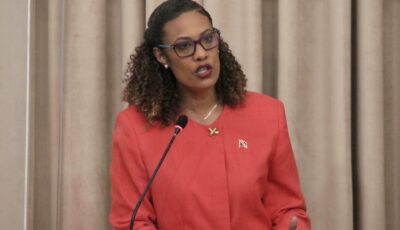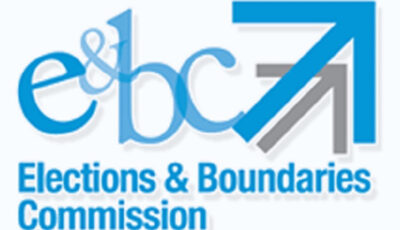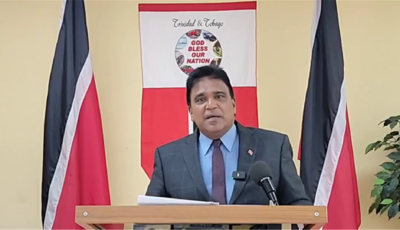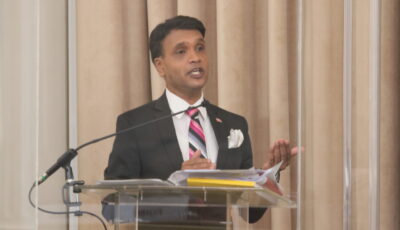PM’s message in commemoration on World AIDS Day
 Fellow citizens, HIV and AIDS remain one of the world’s most significant public health challenges. World AIDS Day, observed on the 1st December each year, is an important opportunity when governments, faith organizations, community organizations, and individuals around the world bring attention to the global AIDS pandemic and emphasize the critical need for a committed, meaningful and sustained response from individuals and communities everywhere.
Fellow citizens, HIV and AIDS remain one of the world’s most significant public health challenges. World AIDS Day, observed on the 1st December each year, is an important opportunity when governments, faith organizations, community organizations, and individuals around the world bring attention to the global AIDS pandemic and emphasize the critical need for a committed, meaningful and sustained response from individuals and communities everywhere.
It is an opportunity for people worldwide to unite in the fight against HIV/AIDS, to show our support for people living with HIV/AIDS, and to remember those who have died from the disease – family members, friends, and colleagues. It is also a time to renew our commitment to combat HIV-related stigma in all its forms, when and wherever it occurs.
As this government has noted before, World AIDS Day is important as it reminds all of us that HIV/AIDS has not gone away.
There is still a vital need to increase awareness, fight prejudice, stigma and discrimination, and improve education, especially for our young citizens who must be encouraged to be sexually responsible for themselves and for their prospective partners.
Since the beginning of the epidemic, approximately 70 million people have been infected with HIV and about 35 million people have died of AIDS-related diseases. It is estimated that at the end of 2012 35.3 million people were living with HIV. These are very frightening statistics indeed that call for more concerted and robust efforts in the global fight against this disease.
Between 2011 and 2015, World AIDS Days will have the theme of “Getting to Zero: Zero new HIV infections. Zero discrimination. Zero AIDS related deaths” as part of the United Nations’ (UN) “Getting to Zero” campaign.
If we are to achieve success in this endeavour, it is incumbent on all of us – individuals, government, the private sector, and civil society – to engage in meaningful and effective collaboration.
Persons must take responsibility for their sexual behaviors and adopt positive, caring, and non-judgmental attitudes towards those infected and affected by HIV/AIDS. HIV/AIDS poses serious challenges for all of us and every citizen must do his/her part in effectively combating this epidemic so as to achieve the goal of Getting to Zero. This is both a social and health prerequisite.
In Trinidad and Tobago, the Ministry of Health’s (MoH) HIV and AIDS Coordinating Unit (HACU) is primarily responsible for policy formulation, standard setting, funding regulatory functions and the coordination of all related initiatives.
In 2011, the MoH launched its HIV and AIDS in the Workplace Policy – which covers the Public and Private Health sectors. Since then, Government has placed great emphasis on the implementation of this policy to ensure the elimination of stigma and discrimination experienced by affected workers.
Through the MoH, the government has been working assiduously to meet global, regional, and national targets. Whilst much success has been achieved vis-a-vis, a reduction in the number of annual new cases; an increase in the number of people receiving antiretroviral treatment; a decrease in the number of AIDS-related deaths; and a reduction in the number of Mother-to-Child Transmissions, much more needs to be done, and this, fellow citizens, is a shared responsibility.
Through a number of initiatives in collaboration with the University of the West Indies, St. Augustine Campus, and the Ministry of Health, we are strengthening our monitoring and evaluation thrust.
In fact, as of 2013 the Monitoring and Evaluation sub-unit of the HACU is now managing a newer generation HIV Case Surveillance System to improve data quality; monitor risk factor exposures; and improve HIV prevention services.
Fellow citizens, mention must be made of the fact that the work of civil society is outstanding and highly commendable and cannot be overemphasized. The draft National Strategic Plan 2011 – 2016 recognizes the critical role civil society plays in the response to HIV/AIDS in Trinidad and Tobago and makes provision for support of their work.
HIV/AIDS is everyone’s business and all countries, all partners, local, regional, and international, must continue to join hands in this critical fight so that all citizens of this planet we call home can make a significant and lasting contribution to authentic human development.
I am confident that together we can make the essential difference. Let us not be complacent in this worthy endeavour to ensure a healthy and peaceful future for our generations.
Office of the Prime Minister TT (Dec 1st, 2013)







